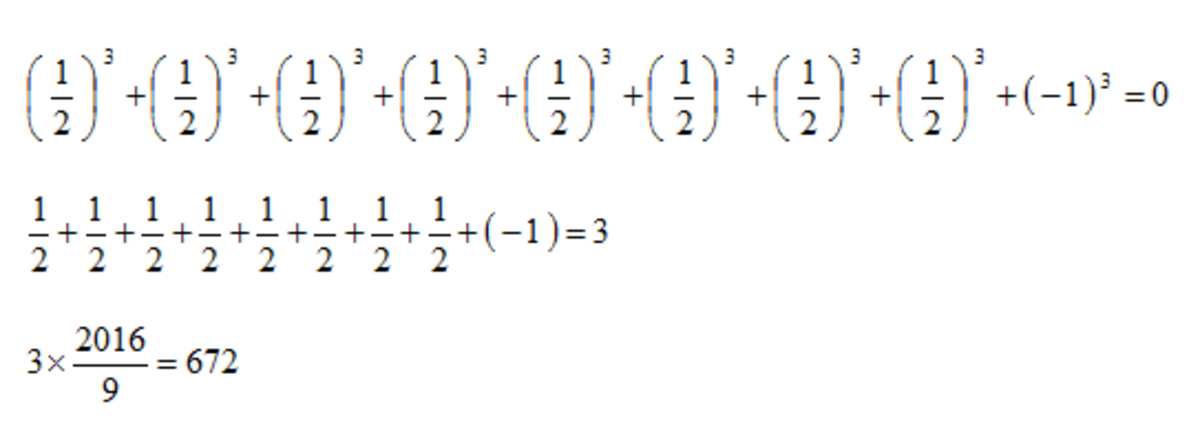Hard SUM
Giving x 1 , x 2 , . . . . . . . . . x 2 0 1 6 real numbers in the interval [ − 1 , 1 ] such that x 1 3 + x 2 3 + . . . . . . . . . + x 2 0 1 6 3 = 0 .
Which is the greatest value of x 1 + x 2 + . . . . . . . . . + x 2 0 1 6 ?
The answer is 672.
This section requires Javascript.
You are seeing this because something didn't load right. We suggest you, (a) try
refreshing the page, (b) enabling javascript if it is disabled on your browser and,
finally, (c)
loading the
non-javascript version of this page
. We're sorry about the hassle.
2 solutions

Up voted. Can any one explain why 1/2 is chosen ? Thank you.
x i = s i n ( α i ) .
s i n ( 3 γ ) = 3 s i n ( γ ) − 4 s i n ( γ ) 3
Summing all α i we get i = 1 ∑ n s i n ( 3 α i ) = 3 i = 1 ∑ n s i n ( α i ) − 4 i = 1 ∑ n s i n ( α i ) 3 = 3 i = 1 ∑ n x i − 4 i = 1 ∑ n x i 3 = 3 i = 1 ∑ n x i
s i n ( 3 γ ) ≤ 1 ⇒ 3 i = 1 ∑ n x i ≤ n and in this case, for n = 2 0 1 6 the greatest number is 3 n = 3 2 0 1 6 = 6 7 2